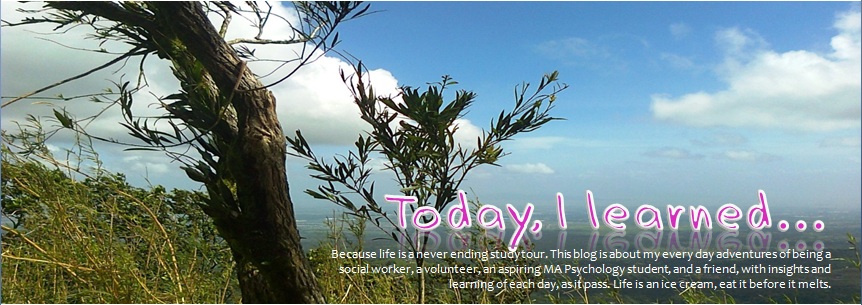This afternoon, I discussed the basic facts about the Philippines (island groups, national symbols, cultural traits, etc.) with the new intern, Mina. I could see her reactions with the new things she learn as well as the doubts she had about the information. It would - as some would strike you to the bones such as Filipinos having a split-level spirituality and having the president as the perfect example... with her being a devoted Catholic while all the while being the reason behind political killings of human rights activists, journalist and leftist students. It's contrary to the teachings of Catholicism or of Christianity which includes love, peace, harmony and justice.
eating dinner with Mina, :)
And so what happened... I have to explain to her again and again by using different ways, various examples, range of synonymous words and at other times, I use parallelism. It helps. I thought if one wants to be a professor, one must know how to share the idea in so many ways as possible so as to make the range of students in the classroom understand it! That's another point ~ a professor should always concern him or her self if the students are keeping up with what he or she is talking about. What I mean is that the professor, in humility, consider the level of experience and understanding of his or her students and try to explain theories, ideas and concepts in the listeners' level.Another tactic is to use the "words" which the student is familiar with. This afternoon, I did not say culture, I say "bunka" (the Japanese term for it.) I tried to use the Japanese words I know in exchange of the English ones. Not only does she appreciate that you know how to speak her language, you've also gained her interest. It is the relevance of what one is teaching to the one being taught that curiosity is given impetus. Relate to the student what you're talking about as much as possible. Freire thought about this first. :)
It was also effective to ask her about what she thinks about the cultural traits or to compare it with Japan. Moreover, it's so simple to do - just be curious or act like you're curios to know even if you already know or you partly know - Socratic method, proven effective. It is also part of my personal advocacy, as I learned from Freire, to not put students nor teachers into boxes and limit their roles. Isn't learning more interesting if we are all students as well as we are all teachers? In that case, it's more of sharing knowledge rather than "filling the receptacle" or the teacher depositing knowledge like money in a bank a.k.a. the student.
Last. It all boils down to the professor or teacher's passion to teach - not to impress but to impart. One's knowledge must not be seen as a private property but a social product. You know what you know because someone else knows it and shared it to you or you realized it because you were observing someone else.... which means you don't know something just because you thought about it individually but some force lead you into thinking about this knowledge - the first law of physics.
What I want to say is... a professor must have the genuine purpose of teaching just because he or she loves to share what he or she knows. If one feels this way, he or she acts responsibly and genuinely concerned with the learning of his or her students (who is also his or her teacher). :4


No comments:
Post a Comment